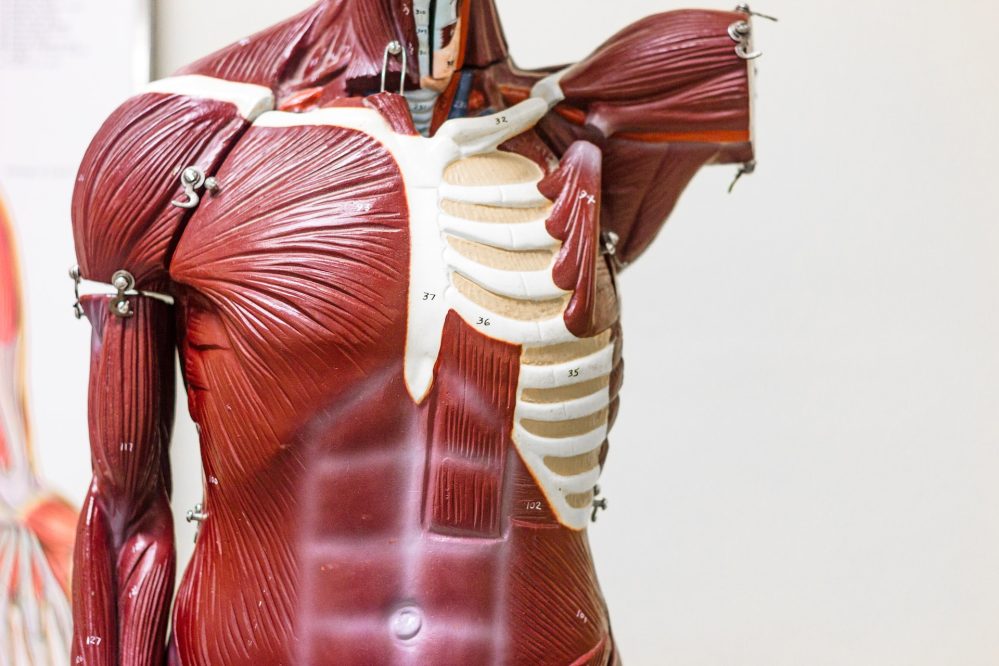In traditional Chinese medicine, the human body is viewed as a harmonious unity of physical, mental, and emotional aspects that are intricately interconnected. Within this holistic framework, acupuncture, a practice that started 3000 years ago in China, continues to play a significant role in modern healthcare.
This article provides insight into the fascinating world of acupuncture, focusing on the essential acupuncture qualifications, such as educational pathways and licensure requirements needed to join the field. So read on and learn more about how you can embark on a fulfilling career as an acupuncturist, harnessing the power of ancient healing techniques to promote well-being and restore balance.
What Is an Acupuncturist?
An acupuncturist is a healthcare professional who specializes in acupuncture, a traditional Chinese medicine practice through adopting a holistic approach to enhance overall well-being. Acupuncturists employ various techniques to stimulate specific points on the body called acupuncture points, which are believed to align with energy channels. By rebalancing the flow of energy, they address diverse health issues such as headaches, arthritis, digestive problems, sports injuries, infertility, and more. Their goal is to promote healing and improve the overall health of their patients.
What Does an Acupuncturist Do?
The primary role of an acupuncturist is to assess patients’ health conditions and provide treatments through various acupuncture methods. Some responsibilities and duties of acupuncturists include:
— Conducting thorough assessments of patients’ health conditions and medical histories
— Identifying appropriate acupuncture points based on the diagnosis
— Inserting and manipulating thin needles to stimulate the acupuncture points
— Incorporating additional techniques such as cupping, herbal medicine, transcutaneous electrical nerve stimulation, or moxibustion when necessary
— Providing guidance and recommendations on lifestyle changes, exercise, and nutrition to support overall well-being
Qualifications to Be an Acupuncturist
Understanding the qualifications to be an acupuncturist is the crucial first step toward pursuing a successful career in this field. Below we’ll go through four key acupuncturist qualifications to help you make informed decisions about your career path.
1. Education
When pursuing a career as an acupuncturist in the United States, acquiring a master’s degree in acupuncture or Chinese medicine is the standard educational qualification. Therefore, it is best to begin your educational journey by obtaining a bachelor’s degree in a relevant field, such as biology or anatomy. These subjects lay a strong foundation for a more in-depth exploration of medicine and the human body as integral parts of acupuncture-related master’s programs’ curricula.
Because of the regulation of acupuncture by State Licensing Boards in most states, it is crucial to select an accredited school recognized by the Accreditation Commission for Acupuncture & Oriental Medicine (ACAOM). The agency ensures that the curriculum, faculty, facilities, and overall educational experience provided by the schools they approve align with established standards and best practices in acupuncture.
Additionally, furthering your education through a doctorate in acupuncture allows you to attain an advanced level of expertise, which can subsequently lead to assuming leadership roles within the acupuncture profession and active involvement in policy development and advocacy efforts.
2. Licensure
In general, acquiring licensure is another necessary qualification for practicing acupuncture. However, the exact criteria for licensure can vary from state to state. Certain states enforce the completion of a series of examinations, while others require acupuncturists to hold a national certification alongside their state license. In some states, licensure is not obligatory, and the sole requirement is the submission of educational proof to the state board.
To obtain licensure in the states that mandate it, you are required to take examinations administered by the National Certification Commission for Acupuncture and Oriental Medicine (NCCAOM). Generally, the following exams are required:
— Acupuncture with Point Location
— Foundations of Oriental Medicine
— Biomedicine
Certain states may also require the Chinese Herbology examination, particularly if you intend to practice herbal medicine.
For more information regarding state licensure requirements, you can visit the NCCAOM site here.
3. Certification
In addition to state licensure, certifications hold immense significance in showcasing your skills in the field of acupuncture and your commitment to advancing your expertise. They serve as valuable credentials that may lead to improved career opportunities and higher pay rates.
In states where the license is not obligatory, completing any NCCAOM examination can serve as a form of certification, attesting to your ability to deliver safe and effective treatments to your patients as well as adherence to the highest standards of professional competence. NCCAOM has several certification options available, including:
— Diplomate of Acupuncture
— Diplomate of Oriental Medicine
— Diplomate of Chinese Herbology
4. Experience
Experience is a crucial qualification for becoming a competent acupuncturist. Practical experience allows you to apply the knowledge gained during your education and improve your skills. Many acupuncture programs offer hands-on training through clinical practice, internships, or supervised work with patients.
However, actively seeking opportunities for practical experience beyond the requirements of educational programs is essential for further enhancing your qualifications. Pursuing internships or volunteering at acupuncture clinics provides valuable exposure to acupuncture techniques, patient interaction, and treatment planning. This experience helps develop your clinical judgment, refine your needling skills, and increase your familiarity with various conditions and treatment approaches.
How Long Does It Take To Become an Acupuncturist?
Typically, becoming an acupuncturist takes around 6 to 8 years. This time frame includes approximately four years dedicated to earning a bachelor’s degree, three years completing a master’s degree program, and additional time invested in clinical training and fulfilling licensing requirements. However, it is essential to acknowledge that the duration can differ based on individual circumstances, such as the choice between full-time or part-time study, program structure, and any supplementary criteria imposed by the state licensing board.
Skills You Need as an Acupuncturist
To succeed as an acupuncturist, a blend of technical and interpersonal skills is essential.
Some of the technical skills you need to succeed in this role include:
— Manual dexterity
— Pulse diagnosis
— Understanding of acupuncture points
— Knowledge of anatomy and physiology
— Proficiency in needle techniques
— Proficiency in adjunctive techniques such as cupping or moxibustion
On the other hand, the soft skills required in this field encompass:
— Patience
— Attention to detail
— Critical thinking
— Cultural sensitivity
— Ethical conduct
— A commitment to lifelong learning
Cultivating these abilities enables you to deliver accurate and impactful treatments, foster trust, and forge meaningful connections with your patients.
Bottom Line
In conclusion, the qualifications to be an acupuncturist encompass a comprehensive set of educational, licensure, certification, and experiential requirements that take approximately 6-8 years to complete. By obtaining a master’s degree in acupuncture or Chinese medicine, fulfilling state licensure and certification requirements, and gaining practical experience through internships or volunteering, you can establish yourself as a skilled acupuncturist and deliver effective treatments to others.
Take the next step to embark on your path as an acupuncturist and carve a rewarding career for yourself!

